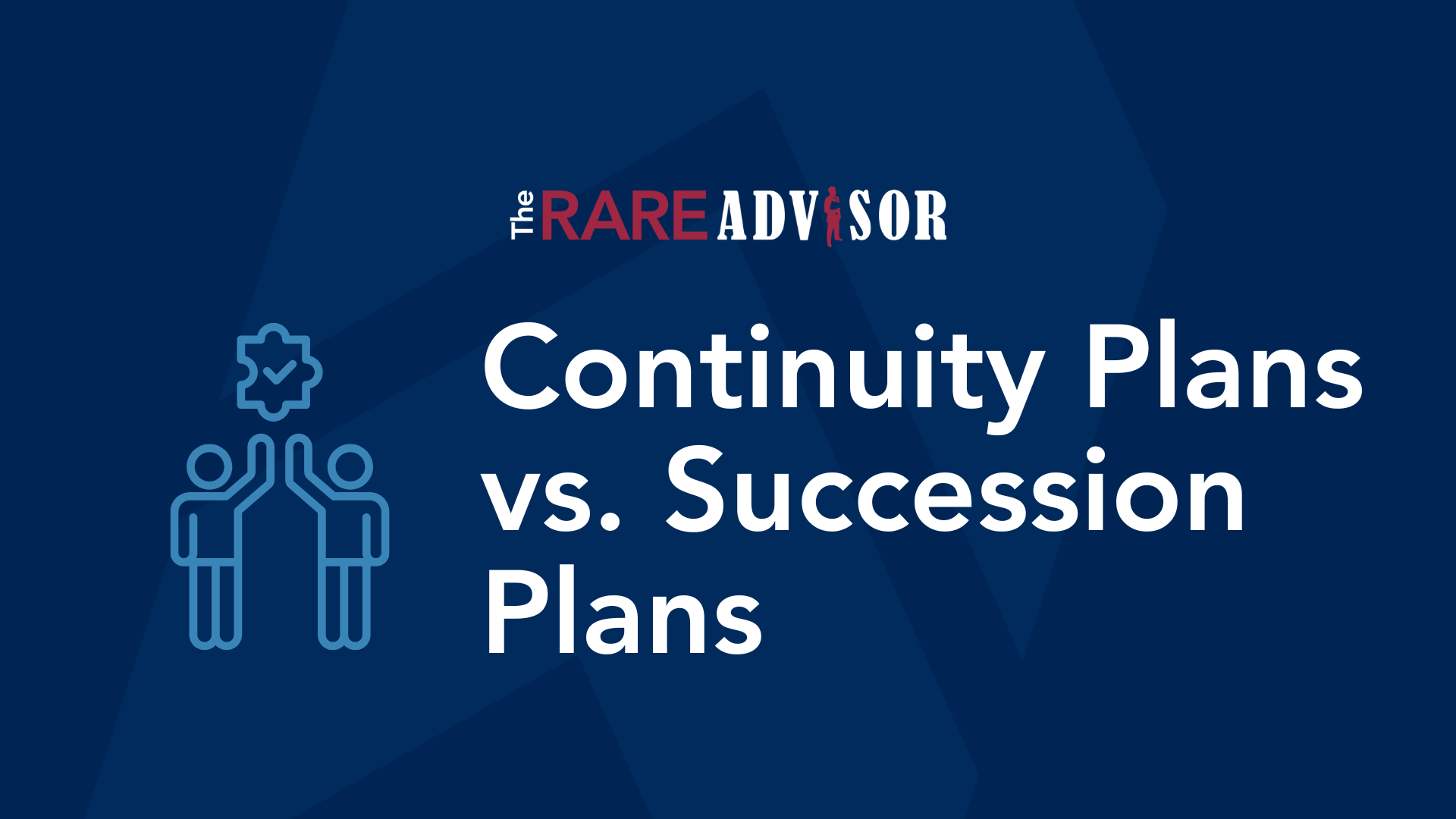Connect with Clients via a Mid-Year Financial Wellness Update

As you continue to elevate your client experience and curate a high-touch approach with your best clients, consider adding the Mid-Year Financial Wellness Update as an intentional and strategic touchpoint.
This meeting is more than just a check-in - it’s a powerful opportunity to deepen trust, stay top of mind, and proactively engage with clients during a time when their goals, priorities, or life circumstances may be shifting.
While you most likely take the time to conduct annual reviews (Strategy & Tactical Meetings) in the spring and fall with your best clients, and conduct personal FORM Calls in between, by setting up a Mid-Year Financial Wellness Update you create another space for a focused, personalized conversation to show that you're not just managing investments - you're actively managing relationships. These updates help you stay aligned with what matters most to your clients, allowing you to identify and respond to life changes early, ensure their strategies stay relevant, and uncover new planning opportunities.
Over time, this consistent value delivery leads to stronger client loyalty, increased referrals and advocacy, and ultimately a more resilient and referral-driven practice. In a world where client expectations continue to rise, thoughtful mid-year engagement helps differentiate you as a proactive, relationship-first advisor.
So, what questions should you ask during a Mid-Year Financial Wellness Update? The checklist below will help you focus your conversation on what’s most important to your clients through the lens of their Critical Financial and Life Events—whether positive or negative, planned or unplanned—that may have an impact on your clients’ goals, financial strategies, and overall well-being.
- Major Family Life Changes – Updates on children and grandchildren, changes in relationship status, living arrangements, or new caregiving responsibilities. For example, adjustments may be necessary if an adult child has moved back home and become financially dependent again, or if a parent has fallen ill and the client has taken on a caregiving role. These conversations help you realign their financial plan and update beneficiaries as needed. This is the first and foundational step, as it will guide the rest of your conversation.
- Job or Income Changes – Has your client experienced any recent changes in employment or income - negative or positive? This could include a job loss, career change, promotion, pay increase, bonus, relocation, or changes in benefits. Any of these events may impact their financial plan and should prompt a review to ensure their strategy remains aligned with their current situation and goals.
- Selling or Starting a Business – Is your client a business owner? Had they planned on selling and retiring soon? Have economic factors put a dent in that plan for the foreseeable future? How can you help them rebalance their life given the situation? Or perhaps your client had a business ready to go, and that business was crippled with the economic shutdowns. How can you help them stay on track financially and salvage a fledgling business?
- Children Entering or Postponing College – Has your client’s child recently started college, postponed enrollment, or made other changes to their education plans? These shifts—such as taking a gap year, transferring schools, or changing financial aid status - can affect cash flow, savings strategies, and financial aid eligibility. It’s important to revisit education funding plans and overall financial strategy in light of these updates.
- Large Purchases or Planned Expenses – Has your client recently made - or are they considering - any significant purchases or large withdrawals? This might include buying a boat, RV, second home, or undertaking a major renovation. These types of expenses can impact their overall financial plan, especially if they fall outside of the goals previously discussed. Checking in allows you to realign their strategy and ensure their long-term objectives remain on track.
- Retirement Timeline Adjustments – Have recent life events or financial changes influenced your client’s expected retirement date? External factors - such as job changes, market performance, or family responsibilities - may shift the timeline. However, the decision to retire ultimately depends on the client’s personal goals and readiness. Review their current plan to determine whether adjustments can be made to keep them on track, even if the timing changes.
- Mid-Year Performance vs Goals – How is your client’s portfolio performing relative to their goals at this point in the year? Rather than just running through the data, use this mid-year meeting to provide context and perspective. The market doesn’t always reflect the true state of the economy, and this is a great opportunity to revisit your last review (Strategy & Tactical Meeting) and discuss how current performance aligns with long-term objectives. Even if the market has been strong, the conversation shouldn’t be solely about returns—it should be about progress toward goals. Are they on track? Should any adjustments be made now to stay on track? Help clients evaluate whether their current level of risk is still appropriate and reassure them that finding the right balance between risk and return is key to navigating both current conditions and future uncertainty with confidence.
Incorporating a Mid-Year Financial Wellness Update into your Service Matrix gives you another meaningful opportunity to show up for your clients—especially your top-tier relationships. While bi-annual reviews (Strategy & Tactical Meetings) and FORM calls remain foundational, this touchpoint allows you to take a deeper look at the evolving life events, goals, and priorities that may have emerged since your last conversation.
By asking thoughtful questions, framing financial solutions in the context of current needs, and offering perspective beyond just portfolio performance, you position yourself not just as a financial advisor, but as a trusted partner in your client’s life. Whether conducted by phone, video, or in person, these conversations help ensure your clients stay informed, confident, and on track - while strengthening your relationship and reinforcing the ongoing value you provide.
Author Info

Allan Oehrlein is a Practice Management Consultant at USA Financial. With over 14 years of experience in Financial Services, Allan brings a...
Related Posts

How Advisors Can Get 10 Hours Back Every Week
In this episode of The RARE Advisor, host Aaron Grady and USA Financial Pareto coach and Practice Management Consultant Allan Oehrlein dive into time allocation as a core lever for advisory success. They unpack the biggest time drains—email, unsolicited calls, and open-door interruptions—and lay out a practical framework for calendar rebalancing that starts with personal time, management time, client appointments, dedicated communications windows, “work on the business” time, and high-impact growth activities. With real-world stories showing how advisors shift from reactive days to structured weeks (and even reclaim Fridays), Aaron and Allan share easy-to-implement tips: color coding calendars, scheduling buffers, daily huddles, and call/appointment protocols. If you’re ready to audit your calendar, define your ideal week, and create structure that truly liberates your practice, this conversation is your next step.

What Billion-Dollar Brands Teach Advisors About Client Loyalty
In this episode of the Financial Advisor Marketing Playbook, Mark Mersman explores what billion-dollar consumer brands like Peloton, Apple, Airbnb, Disney, and Starbucks understand about loyalty—and how financial advisors can apply these lessons to their own practices. Discover why loyalty is emotional, not transactional, and learn practical strategies to create belonging, simplify your process, showcase identity, design unforgettable experiences, and personalize client interactions. Tune in to transform your value proposition and build a community your clients never want to leave.

Continuity Plans vs. Succession Plans: Why Every Advisory Practice Needs Both
What’s the difference between a continuity plan and a succession plan—and why does your advisory practice need both? In this episode of The Rare Advisor, Aaron Grady breaks down these two essential strategies, explains how they protect your firm from unexpected events and prepare you for long-term success, and shares practical steps to start building or improving your plans. If you want to safeguard your business, elevate your professionalism, and protect your legacy, this episode is a must-watch.

How Advisors Can Get 10 Hours Back Every Week
In this episode of The RARE Advisor, host Aaron Grady and USA Financial Pareto coach and Practice Management Consultant Allan Oehrlein dive into time allocation as a core lever for advisory success. They unpack the biggest time drains—email, unsolicited calls, and open-door interruptions—and lay out a practical framework for calendar rebalancing that starts with personal time, management time, client appointments, dedicated communications windows, “work on the business” time, and high-impact growth activities. With real-world stories showing how advisors shift from reactive days to structured weeks (and even reclaim Fridays), Aaron and Allan share easy-to-implement tips: color coding calendars, scheduling buffers, daily huddles, and call/appointment protocols. If you’re ready to audit your calendar, define your ideal week, and create structure that truly liberates your practice, this conversation is your next step.

What Billion-Dollar Brands Teach Advisors About Client Loyalty
In this episode of the Financial Advisor Marketing Playbook, Mark Mersman explores what billion-dollar consumer brands like Peloton, Apple, Airbnb, Disney, and Starbucks understand about loyalty—and how financial advisors can apply these lessons to their own practices. Discover why loyalty is emotional, not transactional, and learn practical strategies to create belonging, simplify your process, showcase identity, design unforgettable experiences, and personalize client interactions. Tune in to transform your value proposition and build a community your clients never want to leave.

Continuity Plans vs. Succession Plans: Why Every Advisory Practice Needs Both
What’s the difference between a continuity plan and a succession plan—and why does your advisory practice need both? In this episode of The Rare Advisor, Aaron Grady breaks down these two essential strategies, explains how they protect your firm from unexpected events and prepare you for long-term success, and shares practical steps to start building or improving your plans. If you want to safeguard your business, elevate your professionalism, and protect your legacy, this episode is a must-watch.

